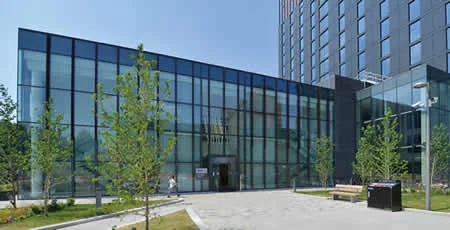Closing the Productivity Gap
Kieran Flanagan reflects on the causes of the North West's productivity gap.
The North West has a long-term productivity problem, with the productivity gap widening over the past 15 years. But there is much that policymakers can do.
The UK’s productivity challenges are well documented, and the North West is a lagging region in a lagging nation. In 2018, productivity, measured by Gross Value Added (GVA) per hour worked, stood at £32.10 – 8% below the UK average. This gap has widened over the past 15 years.
Indeed, London and the South East are the only regions to consistently outperform the UK average. These disparities are not a new phenomenon. Estimates suggest a consistent productivity gap between London and the South East, and the rest of the country, over more than a century.
Sub-regional differences
There are also marked differences in productivity performance within the North West. For instance Cheshire performs relatively well, whereas Merseyside, Lancashire, Greater Manchester and Cumbria all lag behind.
At a local level, the differences are even more striking. Cheshire East, with its high-value life sciences and chemicals activity, is the 19th most productive of the UK’s 170 NUTS-3 areas, whilst North East Greater Manchester, within the same travel-to-work area but still suffering from the scarring effects of deindustrialisation, ranks 160th. High and low productivity areas are distributed throughout the region, and are often neighbours.
The most productive local authorities in the North West are in semi rural and urban fringe locations.
High value
The most productive local authority districts in the North West are in semi-rural and urban fringe locations – Cheshire East, South Ribble, Halton, and Pendle – areas with concentrations of very high value (but relatively low employment) advanced manufacturing, life sciences, aerospace and chemicals activity.
The location of these industries reflects natural advantages or a legacy of contingent past business and policy choices. Their high productivity performance is typically down to a small number of highly productive companies, masking underperformance in other sectors and smaller firms.
Causes
The North West Productivity Forum Green Paper analysis suggests that low productivity in the North West is the result of chronic underinvestment in key growth drivers such as hard and soft infrastructure, R&D activity, and human capital. Many of these challenges affect other parts of the UK, but the North West is particularly afflicted. This may be due in part to:
- Long-term scarring effects from industrial decline.
- The legacy of worklessness, ill-health and deprivation this has left in many places a pattern of public spending oriented towards ameliorating these human and social costs of poor productivity, rather than towards productivity-enhancing investments in infrastructure, skills and innovation.
- A lack of opportunities including finance for high growth potential firms mismatches between skills supply and demand (including significant problems on the demand side).
- Absence of the critical mass of activity necessary to drive growth in the main urban centres of Liverpool and Manchester
- Decades of over-centralisation and micro-management from Whitehall, with a consequent hollowing out of capacity in local government – made worse by austerity cuts.
The North West needs a concerted effort, at scale, over decades, to address these issues. This will require a major and long-term commitment by central government. But it will also require a renewed commitment to devolution as a process, and an investment in the capacity to analyse, make and implement policies at the local and regional levels.
We need to look again at finance and support for growth and innovation, at the benefits of exposure to international competition, and at our ability to adopt and adapt practices and technologies from anywhere in the world. And we need to look at not just the workforce but also the management skills that might be required for a more digitally enabled, net zero economy.
In research terms, we urgently need to also look critically at the quality of regional productivity data, to ensure we are tackling real problems that matter to people’s lives and futures, and not just statistical phantoms.
"The most productive local authority districts in the North West are in semi-rural and urban fringe locations – Cheshire East, South Ribble, Halton, and Pendle – areas with concentrations of very high value (but relatively low employment) advanced manufacturing, life sciences, aerospace and chemicals activity."





